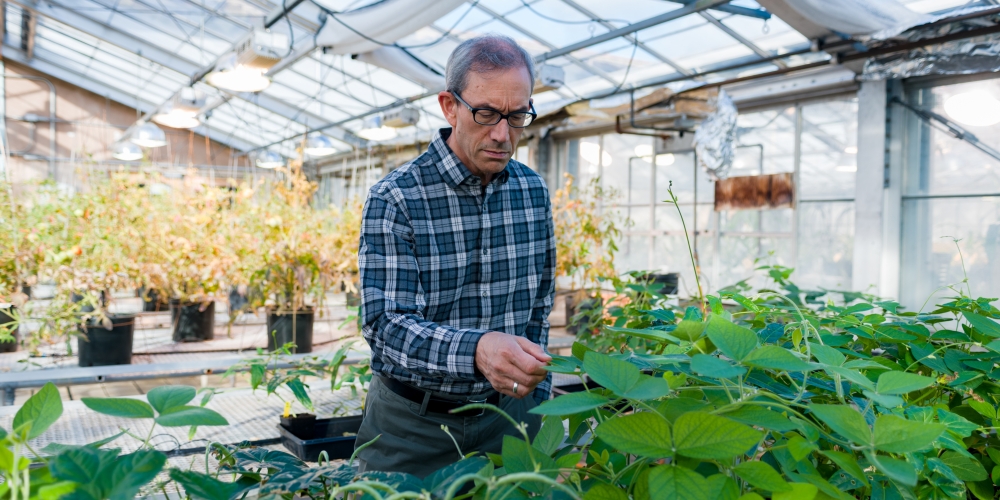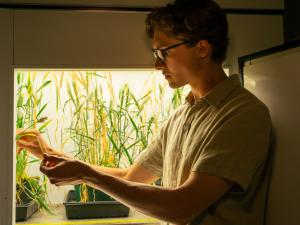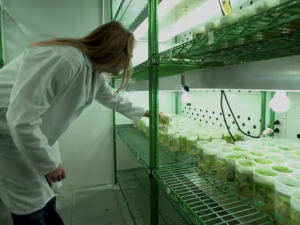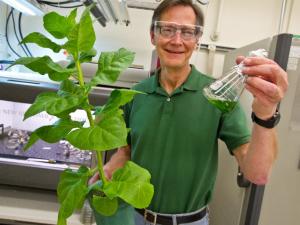

Research Bio
Krishna K. Niyogi is a plant and algal biologist whose research focuses on photosynthesis, photoprotection, and molecular mechanisms of the oceanic biological carbon pump. He studies how organisms regulate light harvesting and protect themselves from oxidative stress. Niyogi’s work combines genetics, biochemistry, and biophysics to optimize photosynthetic efficiency and understand its evolution. His research has broad implications for improving crop productivity, bioenergy production, and carbon sequestration.
He is a Distinguished Professor of Plant and Microbial Biology at UC Berkeley and Investigator of the Howard Hughes Medical Institute. A member of the National Academy of Sciences, he mentors students in photosynthesis, genetics, molecular biology, and biochemistry.
Research Expertise and Interest
genetics, plant and microbial biology, algae, photosynthesis, CRISPR-Cas9 genome editing, carbon sequestration
In the News
In 10 years, CRISPR Transformed Medicine. Can It Now Help Us Deal With Climate Change?
A way to grow plants with less water
Fill 'er up with tobacco? Berkeley Lab-led team explores new path to biofuels
Next week's ARPA-E Summit will feature several Berkeley Lab-led projects, all aimed at dramatically improving how the U.S. produces and uses energy. Among them is an effort to produce transportation fuel from tobacco.
Krishna Niyogi named to Howard Hughes and Moore Foundation plant science program
Krishna Niyogi, professor of plant and microbial biology and an expert on photosynthesis, has been named an investigator with an ambitious plant science program sponsored by the Howard Hughes Medical Institute and the Gordon and Betty Moore Foundation. He is one of only 15 scientists nationwide to be chosen for this honor.




